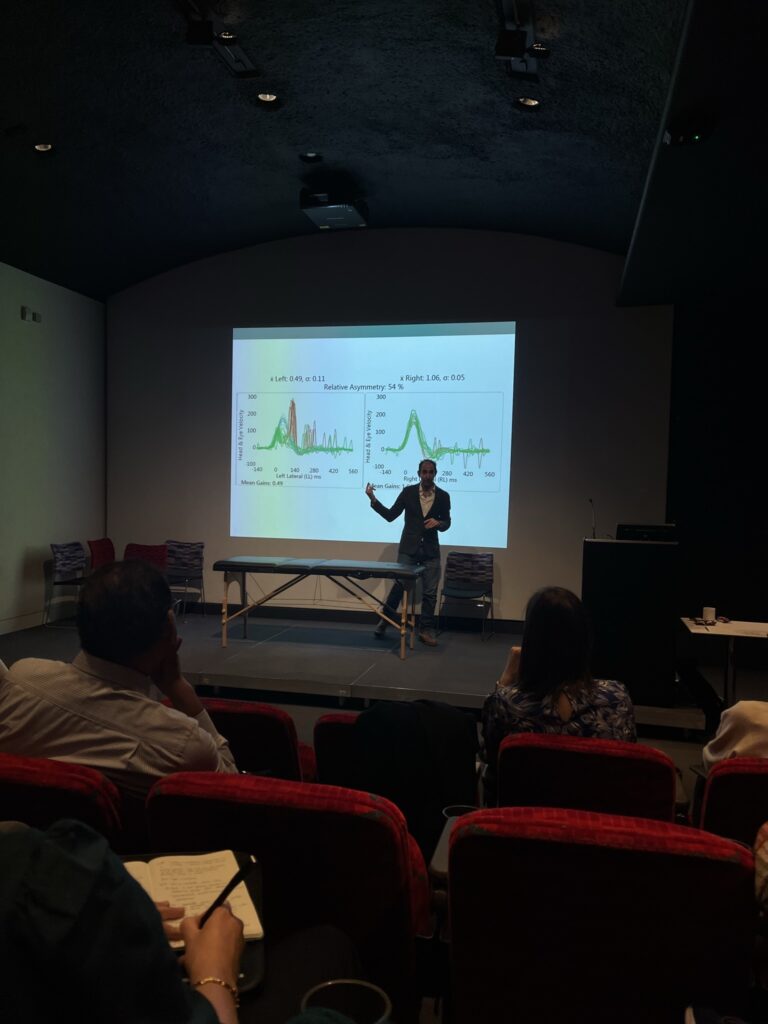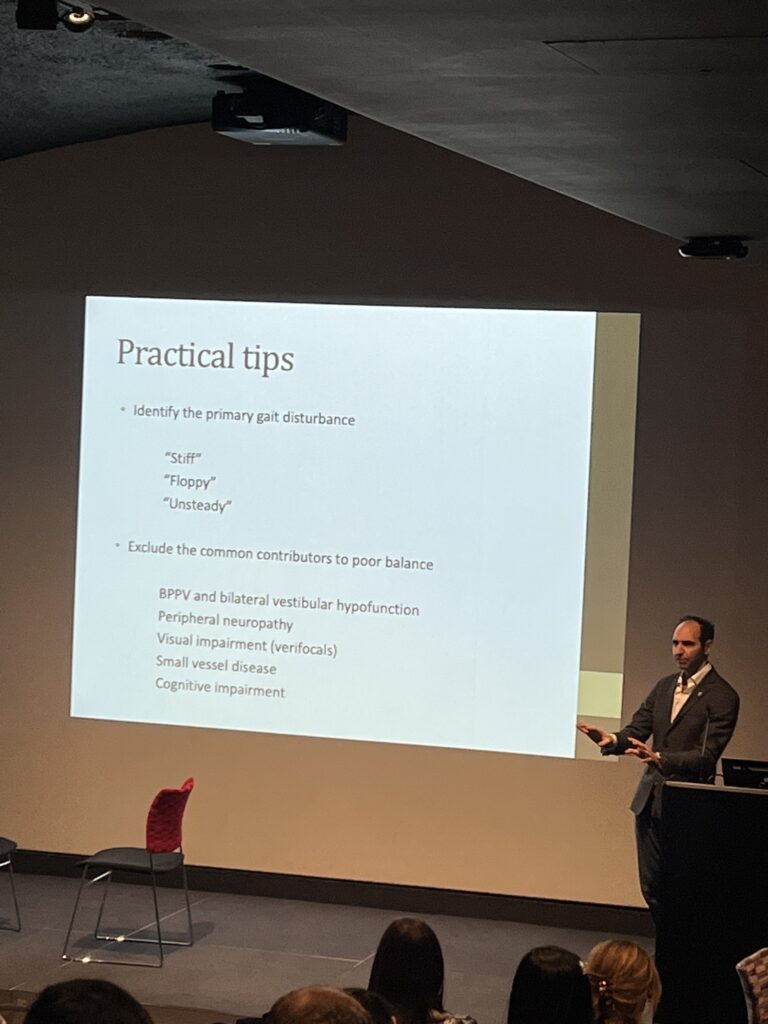The Dizziness and Balance Workshop returned in 2022 as a one-day conference aimed at those with an interest in the management of acute dizziness and balance disorders. The workshop was held on 8th December at the London Transport Museum, UK sponsored by Interacoustics and featured a series of lectures delivered by worldwide leaders on the subject.
The workshop built upon the legacy of previous years and was highly subscribed by a diverse range of healthcare professionals, including emergency department clinicians, neurologists, physiotherapists, nurses, junior doctors, and general practitioners. The workshop focused on the management of acute vertigo and aimed to introduce attendees to the fundamentals of acute peripheral and central vestibular disorders.

The day began with the “Differential diagnosis of the dizzy patient” by Professor Diego Kaski who highlighted the importance of a detailed clinical history and examination in order to arrive at an accurate diagnosis. Professor Kaski went on to a second talk on vestibular neuritis and labyrinthitis discussing the pathophysiology, diagnosis, and management of these disorders. He also discussed the various treatment options for vestibular neuritis and labyrinthitis, including the use of corticosteroids and vestibular rehabilitation.
This was followed by a presentation by Mr Darren Whelan on “Instrumented Assessment for Acute Vertigo”, discussing the range of tools and techniques available for the assessment of acute vertigo, including video-oculography and caloric testing. He highlighted the importance of a comprehensive vestibular assessment in cases of acute vertigo.
Professor Louisa Murdin gave a succinct and practical lecture on vestibular migraine, discussing the clinical presentation, diagnosis, and treatment options for this disorder. She highlighted the importance of a detailed clinical history and examination in making an accurate diagnosis and discussed the various pharmacological and non-pharmacological treatment options for vestibular migraine and the important role that psychological variables play.

The next presentation was on “Acute Vertigo – when is it a stroke” by Professor Adolfo Bronstein, exploring the differential diagnosis of acute vertigo, and the importance of early recognition of stroke. He highlighted the various clinical features that can help distinguish stroke from other causes of acute vertigo and discussed the potential pitfalls of relying solely on examination.
Throughout the day, there were several practical workshops held by Professor Diego Kaski and Ms Amanda Male (highly specialised vestibular physiotherapist) that provided attendees with an opportunity to practice their skills and learn new techniques. The first workshop comprised of BPPV and Dix Hallpike manoeuvres with the discussion of the various treatment options for BPPV, including the use of canalith repositioning manoeuvres. The second workshop was on distinguishing central from peripheral vertigo and the use of video Head Impulse Test (vHIT). The third workshop involved the demonstration of various techniques for the assessment of balance and gait.
Attendees engaged in discussions and debate: some of the key themes that emerged included the importance of a multidisciplinary approach in the management of acute dizziness and balance, the need for more research into the pathophysiology and treatment of vestibular disorders, and the challenges of diagnosing and managing complex cases.
The Dizziness and Balance Workshop 2022 was a highly engaging day that provided attendees with an overview of the principles of acute peripheral and central vestibular disorders, synthesised for the non-specialist practitioner, and with clear practical take-home messages and opportunities for skill development. The workshop was a great success, and we look forward to the next one.